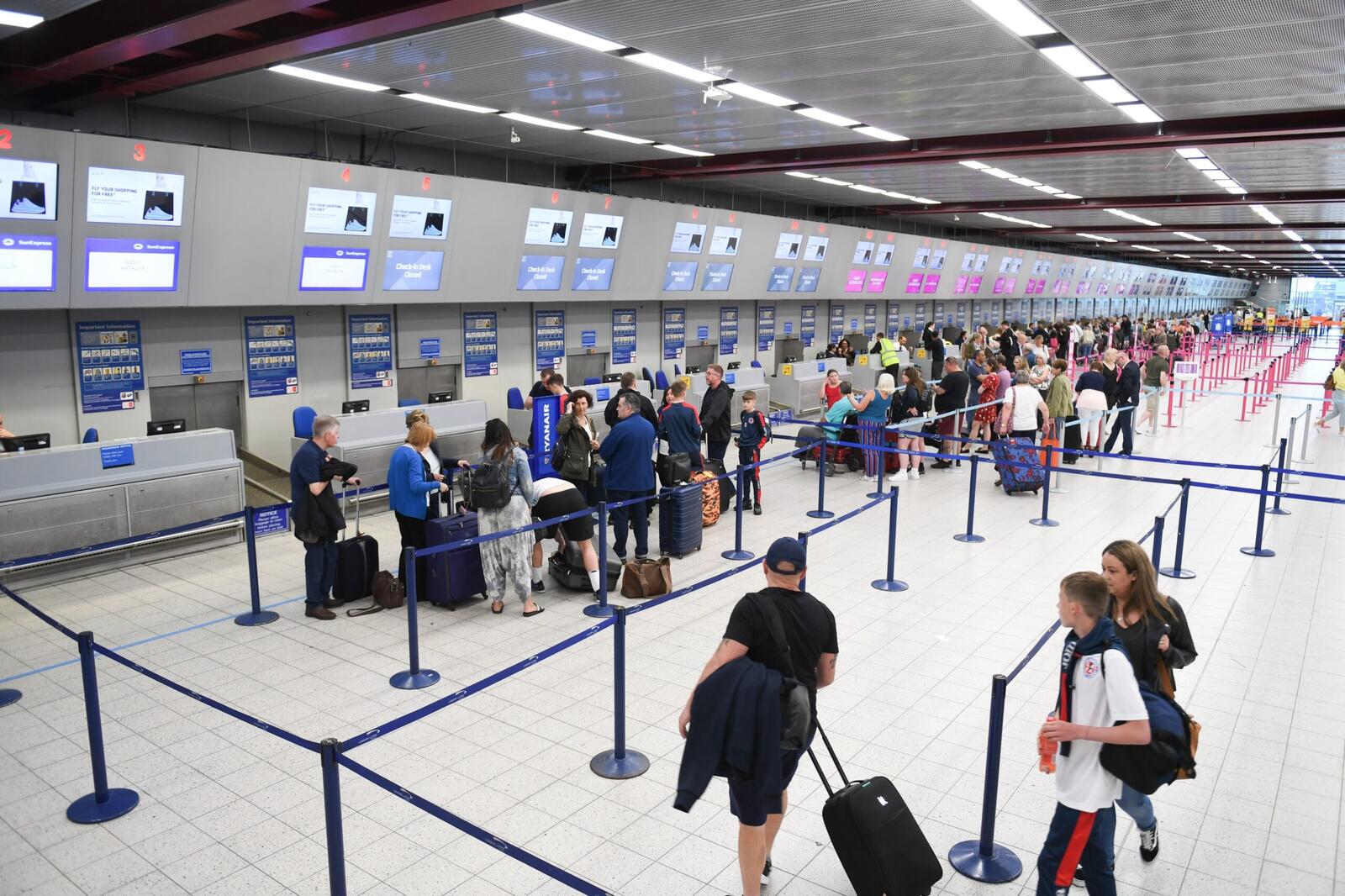Are you tired of the hassle of removing your laptop and liquids from your hand luggage every time you go through airport security? Well, the future is here. Thanks to innovative technology, London City Airport is leading the way in changing the passenger experience. They have phased in a next-generation security scanner that allows travellers to pass through security without the need to take out laptops and liquids from their bags.
This groundbreaking development not only eliminates the inconvenience of complying with the 100ml liquid limit but also allows passengers to bring even more liquid capacity on board.
London City Airport: Technology Innovations
London City Airport has always prided itself on being an early adopter of new technologies, and this new CT scanner takes the passenger experience to a whole new level. The airport’s Chief Operating Officer, Alison FitzGerald, stated, “The new CT scanners will reduce the stress and hassle of 100ml liquids in clear, plastic bags and having to unload your hand luggage. The new process delivers a much more efficient security operation with enhanced security screening.”
London City Airport aims to improve the experience for both business and leisure passengers travelling to domestic and international destinations with this investment in innovative airport technology.
The Benefits of Next-Generation Security Scanners
The introduction of next-generation security scanners brings several benefits for passengers. Firstly, travellers will no longer be required to restrict toiletries and liquids to 100ml bottles. This means you can now carry larger bottles of your favourite products without the need to transfer them into smaller containers.
Second, laptops, tablets, and mobile phones can also now be left in your bag during the security screening process, saving time and reducing the risk of damage or loss, making their journey more convenient and enjoyable.
The CT scanner tech does not compromise on safety—it uses advanced threat detection algorithms and 3D X-ray scanning to provide a detailed image of the contents of passengers’ bags. This allows security operators to easily identify any items that may pose a potential threat, that way, airports can enhance their security standards and ensure the safety of all passengers.
More from News
- A Levels: Advice From Top Entrepreneurs To Students Getting Results
- Time Is Money: How Are Business Owners Spending In 2025?
- How Will Federal Agencies Use ChatGPT Enterprise?
- How Much Water Do Data Centres Actually Use?
- What Is Agentic AI?
- Did Sam Altman Remove ChatGPT 4o?
- Nearly Half Of Corporate Passwords Cracked In 2025 Cybersecurity Tests
- How Can Graduates Adapt To AI In The Workplace?
The Road To Improved Security
The security scanners are a part of a wider initiative by the UK Government to upgrade security checkpoints at all major airports, and by June 2024, all UK airports must install CT scanners to improve the passenger experience and enhance security measures.
This decision follows successful trials at various airports since 2018, which demonstrated the effectiveness of the new screening equipment. Technologies similar to this are already in use at international airports such as Amsterdam Airport Schiphol and LaGuardia Airport in the US.
The Impact on Travel Retail
The relaxation of liquid limits and laptop restrictions at airports could have a significant impact on the travel retail sector. With passengers no longer restricted to 100ml bottles, they may be more inclined to purchase larger bottles of their favorite drinks or cosmetics at their holiday destination. This could result in increased sales for retailers within airports and potentially change consumer behaviour when it comes to purchasing items before or after their flights. This is an amazing opportunity globally!
Edinburgh Airport, one of the major airports in the UK, is set to follow a phased implementation of the new x-ray technology during 2024. They will be installing Smiths Detection’s HI-SCAN 6040 CTiX units, which provide high-quality images and detailed analyses of bag contents. This advanced technology allows security operators to quickly identify any prohibited items and maintain high-security standards while improving the passenger experience.
Gatwick Airport is also planning to implement the new technology by the government’s deadline of June 2024. In the meantime, passengers are reminded to adhere to the existing rules, including the 100ml limit on liquids, gels, pastes, and creams in hand luggage. Other airports, such as London City Airport, Teesside International Airport, and Birmingham Airport, have already introduced new scanners to enable passengers to bring greater volumes of liquid in their hand luggage through security.



